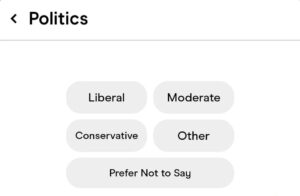Moving the nation’s first primary contest from one flat, Midwestern state to another may not seem like a radical idea. But changing the primary schedule so that the “Land of Lincoln” voted before the Hawkeye state could change the outcome of presidential elections altogether.
“It would be a remarkably different world,” said Kent Redfield, political science professor at the University of Illinois in Springfield.
Illinois is one of 22 states with primaries scheduled Feb. 5, known as Super Tuesday, to weigh in on the candidates for president. Iowa held the first caucus in the nation on Jan. 3.
Illinois and Iowa are not as similar as their shared border may suggest. Most notably, Illinois is more diverse.
According to U.S. Census data from 2006, 35.4 percent of people living in Illinois identify themselves as a race other than white, which is very close to the national average of 34.8 percent. In comparison, Iowa has only a 9.3 percent minority population.
The Associated Press named Illinois “the most average state” in the country in a study published in 2006 based on census data. In the same study, Iowa ranked 41st.
IIlinois has “a lot greater variance in terms of how people look at government,” said Charlie Wheeler III, professor of public affairs reporting at the University of Illinois in Springfield.
Illinois is “much less ideological” than Iowa, Redfield said, which makes religion less important for candidates in this state.
Also, certain issues that are not raised in Iowa might become more central in candidates’ stump speeches if Illinois were first, For instance, Redfield said Democrats might talk about urban problems, transportation and big city revitalization while Republicans might focus on globalization and manufacturing if they campaigned in Illinois first.
Republicans might have a harder time talking about immigration in Illinois, Wheeler said. Iowa Republicans are “trying to out-jingo each other,” he said, whereas in Illinois, they would have to be “a lot more flexible on immigration.”
J.R. Cohen volunteered at Sen. Chris Dodd’s campaign office in Davenport, Iowa until the senator dropped out of the race. A New Jersey native, she supports Iowa’s first-in-the-nation status over other states because of the way Iowans interact with candidates.
“They beat them up a few times . . . it’s just ingrained,” she said. “That’s what makes this place better than New Jersey or Illinois.”
But Cohen’s colleague, Gary Turco, disagreed. Turco is from Connecticut and admitted to being a little jealous of Iowa’s political importance. He said he would support a system where other states got a chance to be first.
“It does seem like it would be more fair,” Turco said.
When analyzing Super Tuesday, experts often talk about the three big states voting that day: California, New York and Illinois. However, in land area (excluding water), Iowa is actually larger than Illinois by almost 300 square miles.
What makes Illinois “big” is Chicago. The population of Illinois is more than four times that of Iowa. Redfield estimates 60 percent of the Illinois vote comes from Cook County.
Any candidates competing in Cook County can expect to pay big money for advertising.
A 45-day “political window” just before a state’s caucus or election is set aside by federal law, in which candidates running for national office cannot be charged more than the lowest rate charged to other advertisers. Still, advertising price differences between Iowa and Illinois stations can be large.
Doug Wood, director of sales for several Des Moines area radio stations, estimated a 30-second ad might cost $250 in Des Moines, while a Chicago station might demand ten times that amount. He estimated the ratio for TV ads would be the same.
Iowans point to differences like these as a reason for their state to remain first. Susan Frembgen, chairman of the Scott County Democratic Party, said it is easier for candidates to invest campaign funds in Iowa.
“It’s good for the nation, obviously,” Frembgen said. “If you want to take it to a state like California or New York, it will become a 30-second commercial everywhere and that’s how you’ll vote for your next president.”
The outcome of the most recent Iowa caucus would be much different were it an Illinois primary instead, Redfield said.
For example, Mike Huckabee (winner in Iowa) and Ariz. Sen. John McCain (winner in New Hampshire) would have been at an economic disadvantage to rivals with bigger war chests, he said.
Redfield predicted that Ill. Sen. Barack Obama’s “favored son” status here would have given him an even easier win than his almost 8 percent margin of victory in Iowa.
Categories:
Nationwide Public
Tags:
first in the nation illinois primary iowa 2008 national news






Be First to Comment